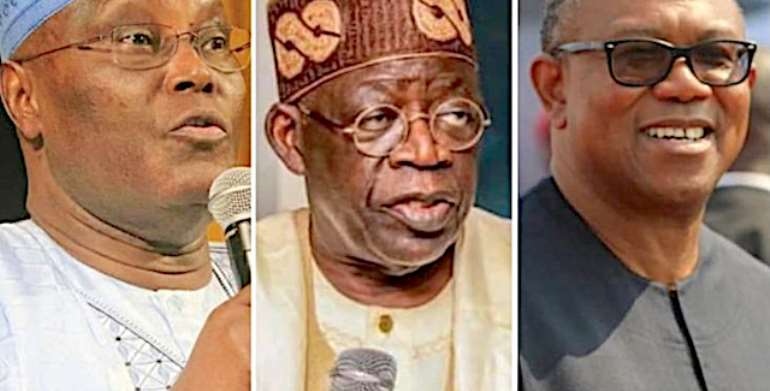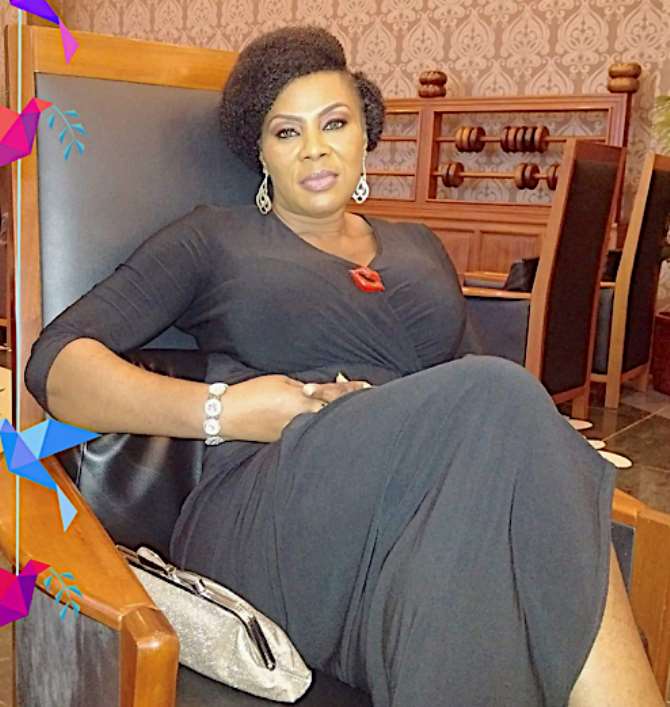2023: It Is Not Only Tinubu, Atiku And Obi, There are 15 Other Presidential Aspirants

If there is any misconception that prevails among the electorates, particularly as the 2023 presidential election is fast approaching, it is that of parochially thinking that the much expected election is all about Asiwaju Bola Ahmed Tinubu, the presidential flagbearer of the All Progressives Congress (APC), Alhaji Atiku Abubakar, the presidential flagbearer of the Peoples Democratic Party (PDP) and Mr. Peter Obi, the presidential candidate of the Labour Party (PDP). No! There are 15 other presidential aspirants as 18 political parties are registered by the Independent National Electoral Commission (INEC) to participate in the forthcoming general elections. The parties are Accord (A), Action Alliance (AA), Action Democratic Party (ADP), Action Peoples Party (APP), African Action Congress (AAC), African Democratic Congress (ADC) and others that cut across All Progressives Congress (APC), All Progressives Grand Alliance (APGA) Allied Peoples Movement (APM) and Boot Party (BP).
Unfortunately, only 3of the parties, which are APC, PDP and LP are popularly known by a huge demographic segment of the electorates. The rest of the parties and their respective presidential candidate, among all the 18 parties, seems to be unpopular and inconsequential to them in the ongoing political dispensation.
Analysed from the foregoing view, it speaks volume, and gives the impression that not few Nigerians are ignorant of the fact that the prevailing democratic dispensation is inherent with multi-party system.
The reason for the foregoing prevailing fallacy cannot be farfetched as literarily recycled politicians and other media creations are more often than not erroneously seen to be the only heroes and heroines that are qualified to oversee the affairs of the country as presidents, and other positions of governance. Against the foregoing backdrop, it is unmistakably understood, particularly as Tinubu is reputed to be a former Senator and governor even as Atiku is widely known to be a former vice president and Obi well known as the former governor of Anambra State.
If I may ask, does being popular makes anyone to be a better leader than others? The answer to the foregoing question cannot be farfetched as history is replete with facts that most popular people more often than not lack character. Not only that, we have being astounded when nationally known figures have been caught in the quagmire of perjury, sexual scandals and corrupt practices.
At this juncture, who says other candidates cannot be better leaders than the ones we have been seeing through the eyes of their media-made popularity? I mean the candidates we have been rooting for and insulting ourselves over on social media platforms. Are we really sure any of them, beside his popularity, has what it takes to salvage the economy of a country like Nigeria?
The reason for the foregoing question cannot be farfetched as history is replete with situations where naturally known leaders end up not being who the people thought they were. But that kind of disappointment shouldn’t really surprise us. When talent, prestige, popularity, personality, or anything other than blameless character become the criteria for political leadership, an environment exists in which false leaders will prosper. It’s hard to keep up a front for long, and when the fragile façade crumbles, the devil has heyday. In fact, every time a so-called leader fails, it obliterates the blast with which he was campaigned for or rather praised prior to the election that brought him or her to position of leadership. Without any iota of exaggeration, Nigerians are presently witnessing the manifestation of the foregoing view.
In fact, as you read this piece the Independent National Electoral Commission (INEC) as at the time political parties concluded their primaries, had 16 of the 18 registered political parties that produced their presidential candidates. I am sure that by now, all the 18 political parties must have produced their presidential candidates.
So far, Atiku Abubakar has emerged as the Peoples Democratic Party’s (PDP) presidential candidate, Bola Ahmed Tinubu as the All Progressives Congress’ (APC) presidential candidate, Peter Obi as the Labour Party’s (LP) candidate and Yusuf Mamman Dantalle as the presidential candidate of Allied People’s Movement (APM) and Musa Kwankwaso as the presidential candidate of the New Nigeria Peoples Party (NNPP).
Others are Chekwas Okorie of the All Progressives Grand Alliance (APGA), Kola Abiola of the Peoples Redemption Party (PRP), Omoyele Sowore of the African Action Congress (AAC), Adewole Adebayo Social Democratic Party (SDP) and Dumebi Kachikwu of the African Democratic Congress (ADC).
Others are Okwudili Nwa-Anyajike of the National Rescue Movement (NRM), Dan Nwanyanwu of the Zenith Labour Party (ZLP), Christopher Imumolen of tthe Accord (A), Hamza Al-Mustapha of the Action Alliance (AA), Malik Ado-Ibrahim of the Young Progressive Party (YPP) and Sunday Adenuga of the Boot Party (BP).
Now the question is, why are the people, specifically the electorates, more focused on only three presidential candidates that are respectively affiliated to the APC, PDP and LP without bothering to look at the leadership qualities of the remaining 15 presidential aspirants are made of? To my view, for us to truly have a leader that will salvage Nigeria’s economy, it would be expedient to look beyond Tinubu, Atiku and Obi.
In fact, it Is not only Tinubu, Atiku and Obi that will be contesting for the presidential election come 2023, there are also 15 other presidential aspirants.
Sandra Ijeoma Okoye (Author)

